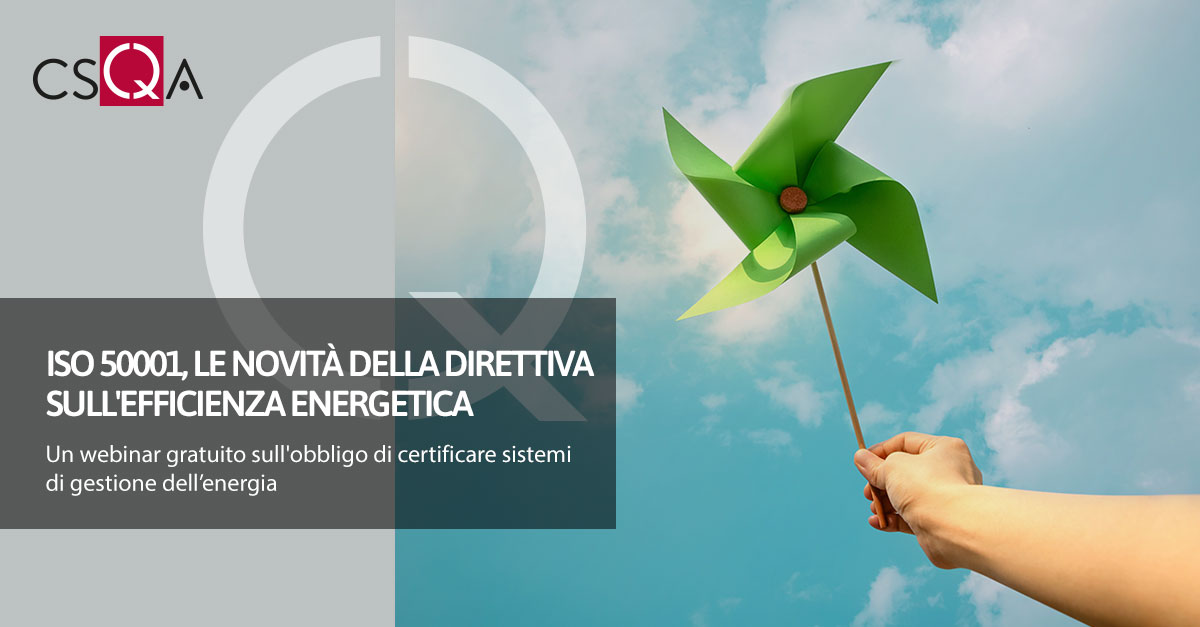 The innovations of the new Directive are different, aimed at reducing final energy consumption - and therefore greenhouse gas emissions - more significantly than previously envisaged, and at increasing energy efficiency.
The innovations of the new Directive are different, aimed at reducing final energy consumption - and therefore greenhouse gas emissions - more significantly than previously envisaged, and at increasing energy efficiency.The directive must be implemented in our country by October 2025 , but it is likely that some forecasts will begin to produce effects earlier , also due to the connection between the directive and the version of the National Integrated Energy and Climate Plan (PNIEC) approved in July.
Energy audits and management systems
To promote a culture of energy efficiency among businesses and organisations, the directive requires large businesses to undergo regular energy audits and implement energy management systems . These measures help identify energy saving opportunities, optimize energy use and reduce operating costs.
Regarding energy management systems and energy assessments, Member States are required to ensure that:
Companies with an average annual energy consumption greater than 85 TJ in the previous three years, considering all energy carriers, implement an energy management system in accordance with EN ISO 50001 within four years of the date of entry into force of the directive.
Companies with an average annual energy consumption greater than 10 TJ in the previous three years, considering all energy carriers, which do not adopt an energy management system, are subject to an energy audit (according to EN 16247 standards). These companies must develop a concrete and workable action plan based on the recommendations arising from the energy audit, identifying measures to implement each technically and economically feasible recommendation. This plan must be developed within three years of the directive coming into force, and subsequent energy audits must be conducted at least every four years.
Develop programs to promote and support, at a technical level, SMEs with an average annual energy consumption of less than or equal to 10 TJ in the previous three years. These programs should encourage SMEs to undergo energy audits and implement the recommendations resulting from these audits.
Develop programs to encourage companies not classified as SMEs with an average annual energy consumption of less than or equal to 10 TJ in the previous three years to undergo energy audits and to implement the recommendations resulting from those audits.
Companies with an average annual energy consumption exceeding 10 TJ in the previous three years that have entered into energy performance contracts are exempted from the obligations established in the first two points, provided that such contracts include the necessary elements of the energy management system and comply the requirements set by the Directive (a summary of these requirements is attached).
Companies that implement an ISO 14001 environmental management system are exempt from the requirements established in the first two points, provided that the environmental management system includes an energy audit based on the minimum criteria indicated by the directive.
CSQA is organizing a free webinar to explore the obligation to adopt and certify energy management systems for companies with certain energy consumption.
The webinar will be an opportunity to discuss the obligations imposed on companies and to discover the opportunities linked to the implementation of an energy management system.
